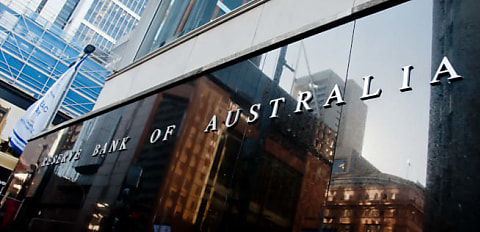Just under 50 per cent of Australians, 46 per cent, are not confident in the Reserve Bank of Australia (RBA) and the government’s ability to reduce inflation in 2023, according to Canstar.
Ahead of RBA governor Philip Lowe’s final rate decision before he hands over to Michele Bullock, comparison site Canstar found Australian adults had lost confidence in the institution’s ability to moderate inflation, despite the slowing numbers.
Canstar’s group executive for financial services Steve Mickenbecker said: “In spite of the good news of slowing inflation, 46 per cent of Australians are not confident that the Reserve Bank and the government can bring inflation under control.
“That level of confidence is even lower among mortgage holders with one in two doubting the government and Reserve Bank’s power to ease cost of living pressures.”
Despite consecutive holds for the first time since the monetary policy tightening cycle began, inflationary pressures and the delayed impacts of rates are affecting those struggling with the cost of living.
Mr Mickenbecker stated: “There are still inflationary pressures and borrowers understandably are still fearful that interest rate shocks can still emerge, and with each 0.25 per cent hike lifting the repayment on a $500,000 loan by around $80 the fear is well justified. Repayments have already gone up by $1,217 to $3,320 and there are high levels of stress.”
Canstar found that mortgage holders and renters were the two groups most impacted by the RBA’s decision making surrounding inflation, with approximately 33 per cent of Australians stating they feel stressed or uneasy about their personal finances.
Meanwhile, Canstar revealed the stress caused by the interest rate increase had bypassed home owners without a mortgage as only 18 per cent claimed to feel any uneasiness or stress about money.
Mr Mickenbecker said: “The cracks are starting to appear, with lenders reporting higher 30-day arrears in loan repayments, and with close to one-third of borrowers reporting that they are living beyond their means, the problems are only just starting.
“The housing crisis is finding victims at all levels, with renters feeling the pain even more as four in 10 report that they are living beyond their means.”
Lowe’s final act to hold: Big 4
Australia’s major banks have all called a cash rate pause at today’s (5 August) monetary policy meeting.
The Commonwealth Bank of Australia’s (CBA) senior economist Belinda Allen said the bank expects the cash rate to hold for the remainder of the year.
Ms Allen stated: “We do not view the meeting as a line ball call, unlike the finely balanced decisions in July and August.
“The data flow over the past month and the large amount of rate hikes delivered to date make it a clearer decision in September.”
Mr Mickenbecker said the hold and a possible cut of the rates looking into 2024 would be a welcomed relief to mortgage holders.
He declared: “Relief may be on the way with each of the big four banks forecasting at least one cash rate cut next year. This should flow through quickly to mortgage holders and provide much-needed stress relief, however, renters may be feeling the pinch for longer as they have to await the expiry of their current lease to see any rent reduction.”
RBA to undertake ‘significant change’ under Ms Bullock
With today’s monetary policy the last in Mr Lowe’s reign as governor, the RBA has already confirmed it will see a significant revamp, with the implementation of 10 recommendations from the RBA review.
Under Ms Bullock’s leadership, one of the key changes will be the amount the central bank meets, starting from 2024, cutting back to only eight times a year, rather than 11 (as is currently the case).
The other changes that will be enacted as part of Ms Bullock’s governance are:
- The board meetings will be longer than is currently the case, they will typically start on the Monday afternoon and then continue on the Tuesday morning. The outcome of the meeting will be announced at 2.30 pm on the second day, typically a Tuesday as is the case now.
- All board members will have the opportunity to attend an internal staff meeting sometime before the board meeting. This will allow them to hear directly from, and ask questions of, a broader range of staff.
- The post-meeting statement announcing the decision will be issued by the board, not, as is currently the case, the governor.
- The governor will hold a media conference after each board meeting to explain the decision. The media conference is expected to be held at 3.30 pm.
- The quarterly Statement on Monetary Policy will be released at the same time as the outcome of the board meeting (in February, May, August, and November), rather than on the following Friday as is currently the case. Given this and other changes, we are reviewing the structure of this document.
- The board, rather than just the governor, will be the signatory to the Statement on the Conduct of Monetary Policy, which is the document that records the common understanding on monetary policy between the RBA and the Australian government. The new statement is expected to be finalised later this year.
- The board will oversee the bank’s research agenda as it relates to monetary policy and aspects of financial stability.
- The bank will continue with its current approach to climate change analysis, focusing on the implications of climate change for the economy, inflation, and the financial system.
- The board will work with the Treasury to undertake five-yearly open and transparent reviews of the monetary policy framework.
- The review had also called for the creation of two RBA boards – one to set the cash rate and another for governance.
[Related: Big 4 agree on September cash rate hold]

